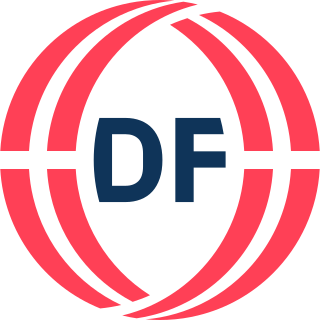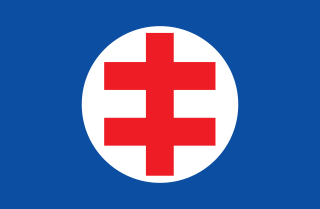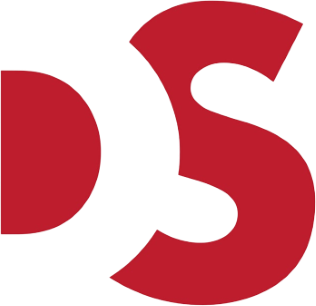Related Research Articles

National Alliance was a national conservative political party in Italy. It was the successor of the Italian Social Movement (MSI), a neo-fascist party founded in 1946 by former followers of Benito Mussolini that had moderated its policies over its last decades and finally distanced itself from its former ideology, a move known as post-fascismo, during a convention in Fiuggi by dissolving into the new party in 1995.
Conservatism is a cultural, social, and political philosophy and ideology that seeks to promote and preserve traditional institutions, customs, and values. The central tenets of conservatism may vary in relation to the culture and civilisation in which it appears. In Western culture, depending on the particular nation, conservatives seek to promote and preserve a range of institutions, such as the nuclear family, organised religion, the military, the nation-state, property rights, rule of law, aristocracy, and monarchy. Conservatives tend to favour institutions and practices that enhance social order and historical continuity.

The Nazi Party, officially the National Socialist German Workers' Party, was a far-right political party in Germany active between 1920 and 1945 that created and supported the ideology of Nazism. Its precursor, the German Workers' Party, existed from 1919 to 1920. The Nazi Party emerged from the extremist German nationalist, racist and populist Freikorps paramilitary culture, which fought against communist uprisings in post–World War I Germany. The party was created to draw workers away from communism and into völkisch nationalism. Initially, Nazi political strategy focused on anti–big business, anti-bourgeois, and anti-capitalist rhetoric; it was later downplayed to gain the support of business leaders. By the 1930s, the party's main focus shifted to antisemitic and anti-Marxist themes. The party had little popular support until the Great Depression, when worsening living standards and widespread unemployment drove Germans into political extremism.

The Night of the Long Knives, also called the Röhm purge or Operation Hummingbird, was a purge that took place in Nazi Germany from 30 June to 2 July 1934. Chancellor Adolf Hitler, urged on by Hermann Göring and Heinrich Himmler, ordered a series of political extrajudicial executions intended to consolidate his power and alleviate the concerns of the German military about the role of Ernst Röhm and the Sturmabteilung (SA), the Nazis' paramilitary organization, known colloquially as "Brownshirts". Nazi propaganda presented the murders as a preventive measure against an alleged imminent coup by the SA under Röhm – the so-called Röhm Putsch.
Neo-Nazism comprises the post-World War II militant, social, and political movements that seek to revive and reinstate Nazi ideology. Neo-Nazis employ their ideology to promote hatred and racial supremacy, to attack racial and ethnic minorities, and in some cases to create a fascist state.
The Conservative People's Party, also known as The Conservatives is a centre-right political party in Denmark. The party is a member of the International Democracy Union and the European People's Party.

The Danish People's Party is a nationalist and right-wing populist political party in Denmark. It was formed in 1995 by former members of the Progress Party (FrP).

The United Party was a political party in South Africa. It was the country's ruling political party between 1934 and 1948.

Hlinka's Slovak People's Party, also known as the Slovak People's Party or the Hlinka Party, was a far-right clerico-fascist political party with a strong Catholic fundamentalist and authoritarian ideology. Its members were often called ľudáci.

Frits Clausen was a far-right Danish politician and leader of the National Socialist Workers' Party of Denmark (DNSAP) before and during World War II.

Young Conservatives Denmark is the youth wing of the Conservative People's Party of Denmark.

The Arrow Cross Party was a far-right Hungarian ultranationalist party led by Ferenc Szálasi, which formed a government in Hungary they named the Government of National Unity. They were in power from 15 October 1944 to 28 March 1945. During its short rule, ten to fifteen thousand civilians were murdered outright, including many Jews and Romani, and 80,000 people were deported from Hungary to concentration camps in Austria. After the war, Szálasi and other Arrow Cross leaders were tried as war criminals by Hungarian courts.

Karl Rudolf Werner Best was a German jurist, police chief, SS-Obergruppenführer, Nazi Party leader, and theoretician from Darmstadt. He was the first chief of Department 1 of the Gestapo, Nazi Germany's secret police, and initiated a registry of all Jews in Germany. As a deputy of SS-Obergruppenführer Reinhard Heydrich, he organized the World War II SS-Einsatzgruppen, paramilitary death squads that carried out mass-murder in Nazi-occupied territories.
The historiography of World War II is the study of how historians portray the causes, conduct, and outcomes of World War II.

La Violencia was a ten-year civil war in Colombia from 1948 to 1958, between the Colombian Conservative Party and the Colombian Liberal Party, fought mainly in the countryside.

The Fatherland Front was the right-wing conservative, authoritarian, nationalist, and corporatist ruling political organisation of the Federal State of Austria. It claimed to be a nonpartisan movement, and aimed to unite all the people of Austria, overcoming political and social divisions. Established on 20 May 1933 by Christian Social Chancellor Engelbert Dollfuss as the only legally permitted party in the country, it was organised along the lines of Italian Fascism, was fully aligned with the Catholic Church, and did not advocate any racial ideology, as Italian Fascism later did. It advocated Austrian nationalism and independence from Germany on the basis of protecting Austria's Catholic religious identity from what they considered a Protestant-dominated German state.

Danish Unity or Danish Collection is a political party in Denmark, founded in 1936 by Arne Sørensen. In 1939 the National Unity party, established by Victor Pürschel in 1938, merged with the party. It contested elections in 1939, 1943, 1945, 1947, April 1953 and then once more in 1964. It remains as a political organisation.

The Freedom Party of Austria is a political party in Austria, variously described as far-right, right-wing populist, national-conservative, eurosceptic and russophile. It has been led by Herbert Kickl since 2021. It is the largest of five parties in the National Council, with 58 of the 183 seats, and won 29.21% of votes cast in the 2024 election and it is represented in all nine state legislatures. On a European level, the FPÖ is a founding member of the Patriots.eu and its six MEPs sit with the Patriots for Europe (PfE) group following the dissolution of its predecessor, Identity and Democracy (ID).

The politics of Denmark take place within the framework of a parliamentary representative democracy, a constitutional monarchy and a decentralised unitary state in which the monarch of Denmark, King Frederik X, is the head of state. Denmark is a nation state. Danish politics and governance are characterized by a common striving for broad consensus on important issues, within both the political community and society as a whole.
References
- ↑ Widfeldt, Anders (2015). "Quasi-fascist parties and borderline cases". Extreme Right Parties in Scandinavia. Routledge. ISBN 9781134502141.
- Entry in the socialist encyclopedia leksikon.org (in Danish)